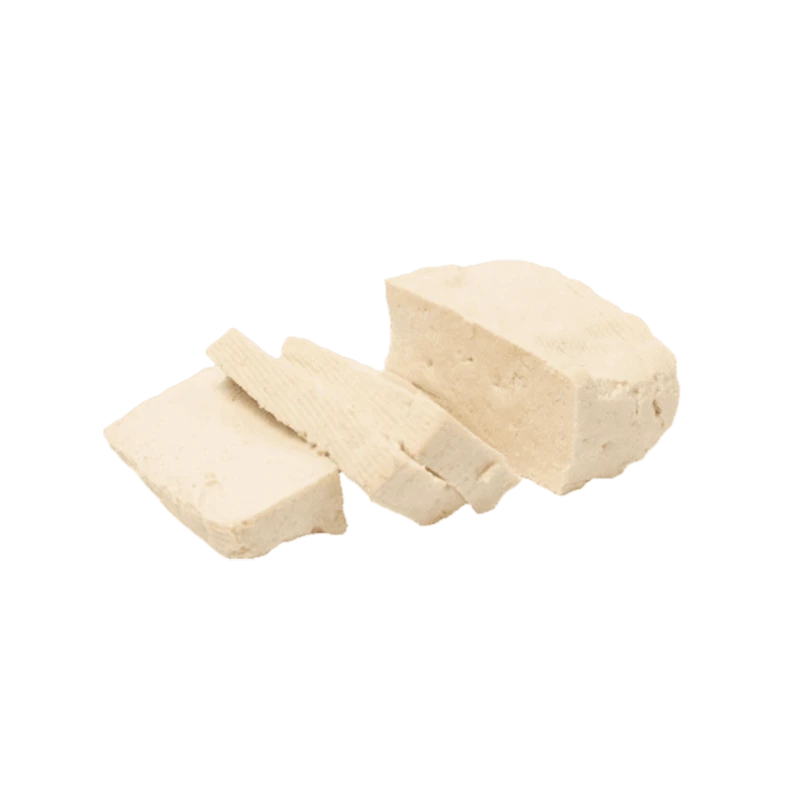Tofu — Nutrients, Health Benefits, And Shopping Tips

Written by Listonic Team
Last update on September 4, 2024
Tofu nutrients
Nutrition facts
Amount per 100 g
Calories
🔥 144 kcal
| Nutrition per: 100 g | Value | % Daily Value* |
|---|---|---|
| Carbs | 2 g | 0.73% |
| Fiber | 1 g | 3.57% |
| Sugars | 1 g | 2% |
| Glycemic Index | 15 | - |
| Protein | 16 g | 32% |
| Sodium | 7 mg | 0.3% |
| Total Fat | 9 g | 11.54% |
*The % of Daily Value (DV) tells you how much a nutrient in a serving of food contributes to a daily diet. 2,000 calories a day is used for general nutrition advice.
16 g
🧀 Good Protein Content
15
🟢 Low Glycemic Index
Tofu facts & tips
Health benefits
- High in protein, providing essential amino acids for muscle growth, repair, and overall body function, making it a great plant-based protein source.
- Contains healthy fats, including omega-3 fatty acids, which support heart health and reduce inflammation.
- Rich in essential vitamins and minerals such as calcium, iron, magnesium, and phosphorus, which support overall health and well-being.
- Supports heart health due to its low saturated fat content and cholesterol-free nature.
- Contains isoflavones, which have antioxidant properties and may support heart health and reduce the risk of certain cancers.
- Versatile and easy to prepare, making it a convenient addition to a variety of dishes, from stir-fries to smoothies.
- Low in calories, making it a nutritious option for weight management and overall health.
Health risks
- Potential for allergic reactions in individuals with soy allergies, causing symptoms like itching, swelling, difficulty breathing, or anaphylaxis.
- Potential for digestive discomfort such as bloating or gas in some individuals, particularly those sensitive to soy or high-fiber foods.
- Potential for hormonal effects as tofu contains phytoestrogens, which may affect hormone levels in sensitive individuals, particularly when consumed in large quantities.
- Risk of contamination with genetically modified organisms (GMOs) if the tofu is not sourced from non-GMO or organic soybeans, depending on personal preferences and concerns about GMOs.
- Low fat content which, while generally beneficial, may result in lower satiety and a tendency to overconsume other foods to feel full.
How to choose tofu
Tofu should have a smooth texture and a uniform creamy white color. It should be firm yet slightly spongy to the touch, retaining its shape but yielding under pressure. The block should be intact without any cracks or crumbles.
Avoid tofu that is discolored or has a sour smell, as these are indicators of spoilage. Tofu that is overly firm or has visible freezer burn should also be avoided, as it will not have the desirable texture or flavor when cooked.

How to store tofu
Tofu should be kept in the refrigerator, submerged in water in an airtight container. This maintains its freshness for up to a week. Change the water daily to keep tofu fresh.
Air exposure causes tofu to dry out. Don't leave it in its original packaging once opened. Use clean utensils and tightly seal the container to maintain quality. Proper storage keeps tofu firm and flavorful.
✅ Extra Tip
How long does it last?
Tofu can last for 1 week in the refrigerator once opened. For longer storage, tofu can be frozen for up to 3 months. Always keep it in its liquid and tightly sealed to maintain freshness.
What to do with leftovers?
Leftover tofu can be used in a variety of savory and healthy dishes. Add it to stir-fries, salads, or grain bowls for a protein-rich boost, or mix it into a scramble with vegetables and spices for a vegan-friendly breakfast. Tofu is also great when marinated and grilled as a meat substitute in sandwiches, wraps, or tacos.
Use tofu in a soup or stew with vegetables and broth, or blend it into a smoothie with fruits and sweeteners for a creamy texture. If you have a lot of tofu, consider making a batch of tofu nuggets or patties by breading and frying it until crispy. Tofu can also be blended into a dip or spread with herbs, garlic, and lemon, or used as a filling for stuffed vegetables or dumplings. For a quick snack, enjoy tofu with soy sauce and sesame seeds, or mix it into a pasta salad with fresh vegetables and a tangy dressing.
👨⚕️️ Medical disclaimer
Discover products from other categories
Listonic Team
Fact-checked
Our editorial team checked this article to make sure it was accurate at the time of publishing it.
Get the top-rated shopping list app

tofu
1 piece







